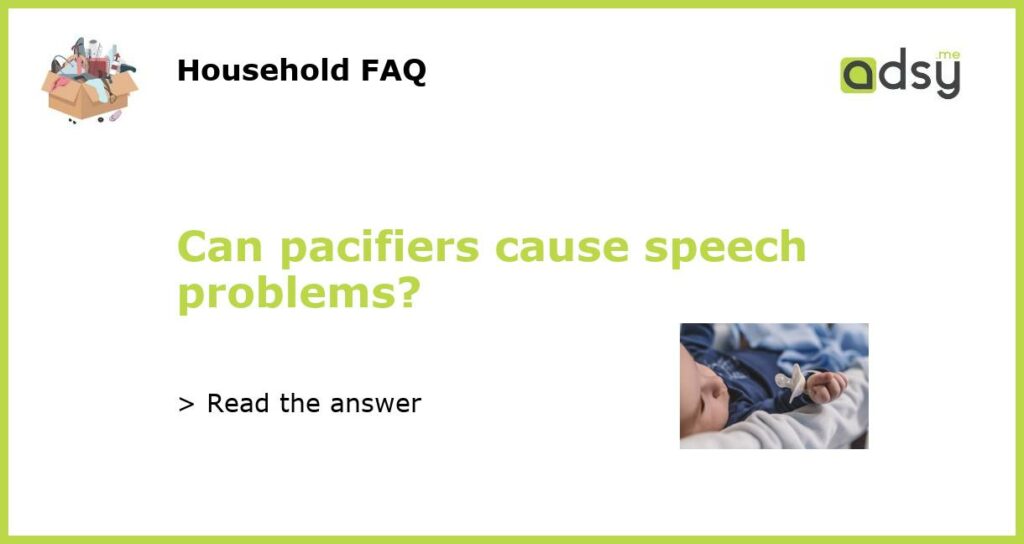The Link Between Pacifiers and Speech Problems
Many parents rely on pacifiers to soothe their crying babies, but there has been concern about the potential impact of pacifier use on speech development. In this article, we will explore whether pacifiers can cause speech problems in children.
The Importance of Early Speech Development
Speech development is a crucial milestone in a child’s growth and is essential for effective communication. During the first few years of life, children rapidly acquire language skills and develop the ability to pronounce sounds, form words, and construct sentences. Any disruption or delay in this process can have long-term effects on a child’s ability to communicate effectively.
The Role of Pacifiers in Speech Development
There is ongoing debate among experts about the potential impact of pacifiers on speech development. Some argue that prolonged pacifier use can negatively affect a child’s ability to properly form sounds and words. They believe that the prolonged sucking motion required when using a pacifier can lead to muscle imbalances in the mouth, tongue, and jaw, which may affect speech production.
On the other hand, other experts argue that pacifiers do not directly cause speech problems. They suggest that any potential speech issues are more likely the result of other factors, such as genetic predispositions, hearing impairments, or language delays. They argue that pacifiers provide comfort and can even have a positive effect on speech development by reducing stress levels in infants.
Evidence from Scientific Studies
Several scientific studies have been conducted to explore the relationship between pacifier use and speech problems. One study published in the Journal of Pediatrics found a significant association between prolonged pacifier use and language delays in children. The study concluded that pacifier use beyond the age of 12 months was linked to an increased risk of speech difficulties.
However, it’s worth noting that other studies have found no significant link between pacifiers and speech problems. A study published in the International Journal of Pediatric Otorhinolaryngology analyzed the speech development of children who used pacifiers and found no adverse effects on speech production or articulation.
Recommendations for Parents
While there is no definitive answer to whether pacifiers can cause speech problems, it is important for parents to make informed decisions about pacifier use. Here are some recommendations:
- Avoid prolonged pacifier use beyond the age of 12 months.
- Encourage healthy oral development by providing alternative forms of comfort, such as soft toys or blankets.
- Monitor your child’s speech development and consult a speech-language pathologist if you have concerns.
- Limit pacifier use to specific situations, such as sleep time, rather than allowing constant use throughout the day.
- Seek professional advice from pediatricians or pediatric dentists for personalized recommendations based on your child’s needs.






